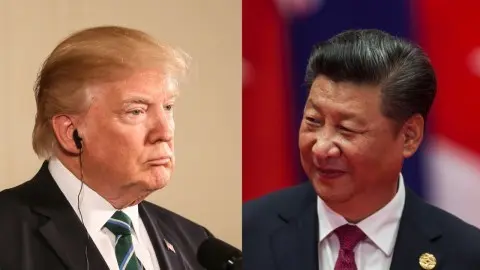Yuan devaluation ‘threat’ is tiny
Reports that China is looking at ways of devaluing CNY to offset export value losses due to US tariffs is not a 'threat' but merely more noise in the market
CNY devaluation - not even a threat
The chance of yuan devaluation because of a trade war is tiny. Export demand may well shrink when the US imposes 25% tariffs on some Chinese goods. But a devaluation of the yuan would not have the same impact on exports for three reasons:
- First, a devaluation of the currency applies to all goods, exports and imports.
- Second, it cannot solve the root cause of the problem, that the US thinks that China is the main cause of the US trade deficit.
- Third, it makes things even worse. A devalutaion of the yuan would strengthen the US government's argument of China being unfair regarding trade, which is not what the Chinese government wants to see.
We do not think CNY devaluation is seriously being considered by China in reaction to any US trade war.
Yuan is acting like a safe haven currency
As we've seen, when trade tensions escalate the dollar softens against the major basket of currencies. This is making the yuan look like a safe haven currency in the Asia time zone. This is positive for yuan's internationalisation. A stronger currency is more attractive to its holders. This is more obvious after the debut of yuan oil futures in China.
For the Chinese government, yuan internationalisation is a longer-term goal and is an important national and international policy for China. Keep in mind that this escalation in trade tension is somewhat shorter-term. We believe the Chinese government would follow the long-term goal on the future of the yuan, and apply other means to react to the US's trade issues.
Is the trade war a tit-for-tat after all?
A tit-for-tat could be the beginning of the trade war. But President Xi's speech in Boao Forum on 10th April shows that China is ready to open up the automobile sector to the rest of the world. At the same time, China is imposing 25% tariffs on US automobiles as a retaliation on American tariffs on Chinese goods.
It's obvious that China is sending a warning signal that these tit-for-tat actions are not in the US's interest. In fact, China is giving America a chance to go back to square one. For the moment, automobile manufacturers of other countries would be more than happy that the US continues its tariffs on China.
We maintain our forecast of USDCNY
Unless there is any change in the speed of yuan internationalisation, we believe we'll see just a mild appreciation of the yuan in 2018. Trade wars, of course, add more uncertainty and we think the central bank will be cautious not to speed up the internationalisation of the currency too fast.
Yes, there's plenty of noise in the market. But our forecast of USD/CNY for 6.10 by the end of the year is still on track.
This publication has been prepared by ING solely for information purposes irrespective of a particular user's means, financial situation or investment objectives. The information does not constitute investment recommendation, and nor is it investment, legal or tax advice or an offer or solicitation to purchase or sell any financial instrument. Read more
Download
Download article
10 April 2018
In Case You Missed it: Trumpian uncertainties This bundle contains 5 Articles